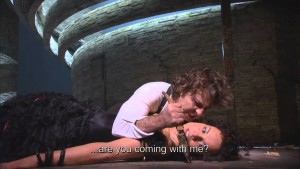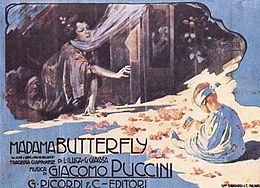By Logan Snook
Fun fact…I am an opera singer. I get to sing beautiful, passionate music, express dramatic, powerful text, and depict many characters who are objectified by men. Feminism and female empowerment is maybe not the most prevalent theme in operas. One of the difficulties with being in opera today is handling the antiquated role of women in the theater. Female singers play their fair share powerless women, or women controlled by their male counterparts. Not the best message to send, right? What makes it worse is when the male roles just don’t know when to back off.
How about some examples. Let’s take a look at the opera Carmen. We like to think of Carmen as a strong, independent woman who is owned by no man, but in the end, it is a man who is her demise. Basically, Don José, a soldier, falls in love with Carmen, a gypsy. She tells him over and over again that she will not be tied down. When she falls in love with a bull-fighter, he is overtaken with jealousy, and stabs Carmen to death outside the bull-ring.
In her first aria, Carmen explicitly tells José that her love cannot be tamed. This conversation becomes a theme between the two of them throughout the opera, but does José ever listen? Definitely not. Does he continue to pursue her, even though she has expressed her disinterest? He sure does. So, what would have happened if José had respected Carmen’s sentiments in the first place? Luckily, Reddit/r/Feminism has already taken care of that for us:
Carmen:
I’m really not into monogamy. I will sing a whole song detailing this explicitly.
Don José:
I think you’re really hot and I want to run away with you.
Carmen:
Well, we can have lots of passionate sex for a while, but again–I don’t do long term relationships. Didn’t you hear all the singing in Act I?
Don José:
You know, maybe our relationship goals aren’t compatible.
Carmen:
No s**t, Sherlock. Bye.
Wow. Well that was effective. Thanks to Satiricali, 5 standard-repertory operas, ranging from 113-230 year-old, are brought to the 21st century through feminism! Let’s take a look at one more.
Madama Butterfly is centered on a 15-year-old Japanese geisha, Cio-Cio-San  (Butterfly), who is set up in an arranged marriage to wed American naval officer, Pinkerton. Pinkerton views the marriage as a temporary situation, knowing after he serves in Japan he will return home and marry American woman. Cio-Cio-San and Pinkerton wed, and he leaves his new bride shortly after their marriage. Cio-Cio-San has his son, and waits for his return for 3-years. He finally returns, bringing with him his American bride. After agreeing to give her son up to Pinkerton and his new wife, Cio-Cio-San, rather than living a life of shame, decides to die in honor and stabs herself.
(Butterfly), who is set up in an arranged marriage to wed American naval officer, Pinkerton. Pinkerton views the marriage as a temporary situation, knowing after he serves in Japan he will return home and marry American woman. Cio-Cio-San and Pinkerton wed, and he leaves his new bride shortly after their marriage. Cio-Cio-San has his son, and waits for his return for 3-years. He finally returns, bringing with him his American bride. After agreeing to give her son up to Pinkerton and his new wife, Cio-Cio-San, rather than living a life of shame, decides to die in honor and stabs herself.
AWFUL storyline for a feminist. Let’s see what it looks like with “Feminism” added:
Pinkerton:
I love you and I want to marry you.
Butterfly:
Are you aware that I’m 15 years old right now?!
Pinkerton:
Yeah, I’m especially attracted to how innocent and delicate and exotic you are. Oh, and by the way I have to leave the country right after we have sex a few times.
Butterfly:
That sounds highly suspicious, not to mention incredibly creepy. Get the f*** out of my house, you imperialist bigamist pedophile.
Ahhh…that’s better.
Luckily, modern opera is flourishing and addressing the issue of women’s roles on the stage. Strong and influential women are on the trend, while helpless and dependent is on the way out (and thankfully, dominating male roles are slowly becoming less favorable). I say keep that trend coming! Personally, if someone wants to write an opera about Simone de Beauvoir, give me a call.
Want to read the other operas made shorter through Feminism? Go here!